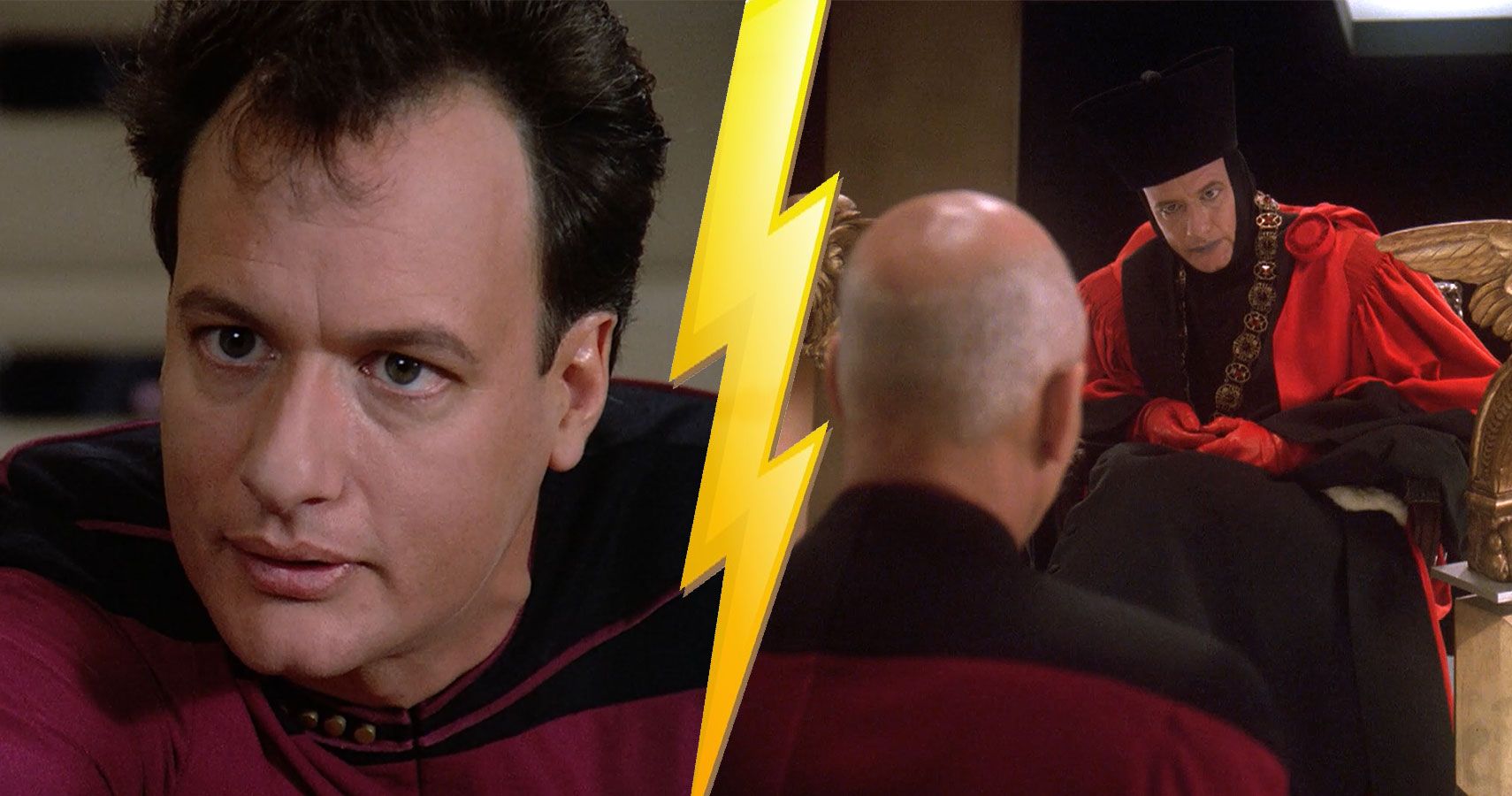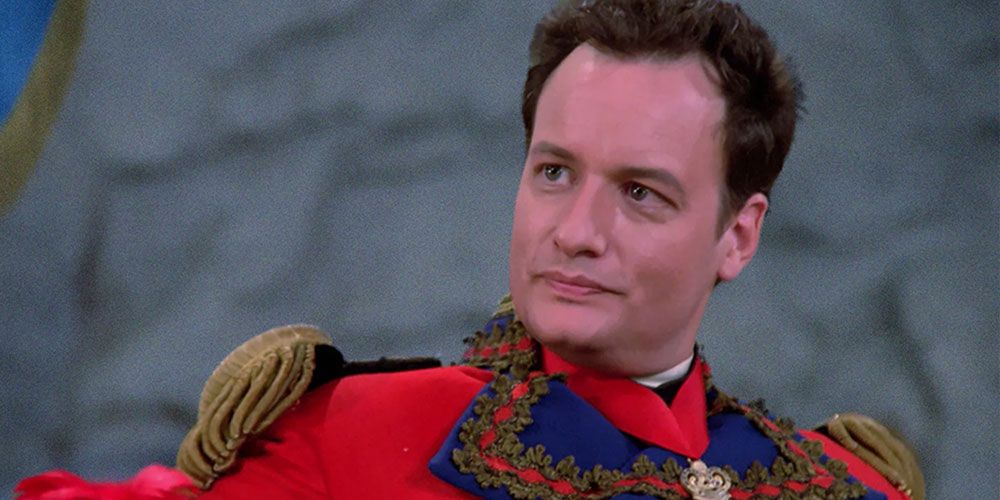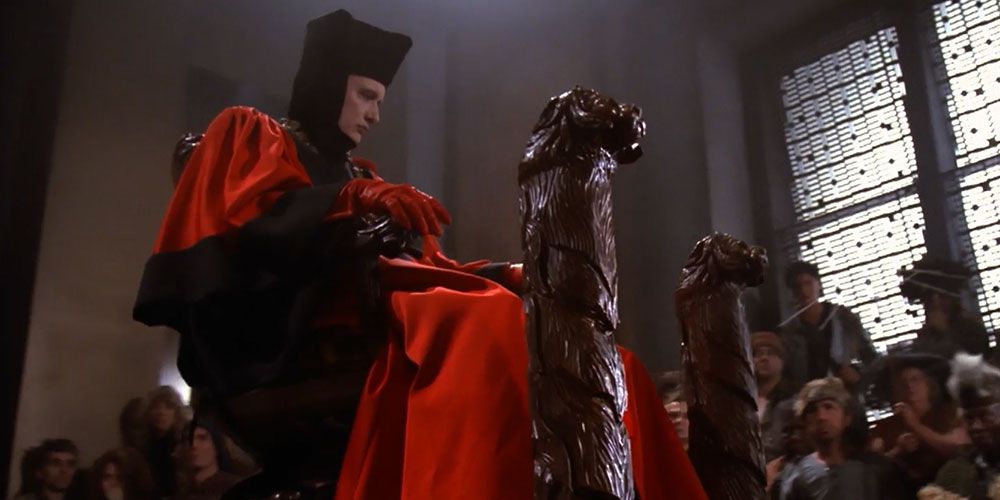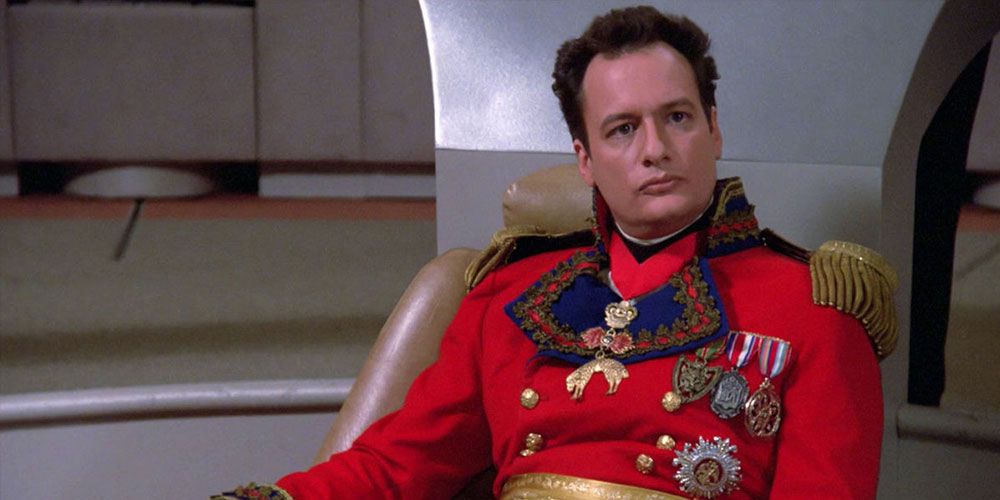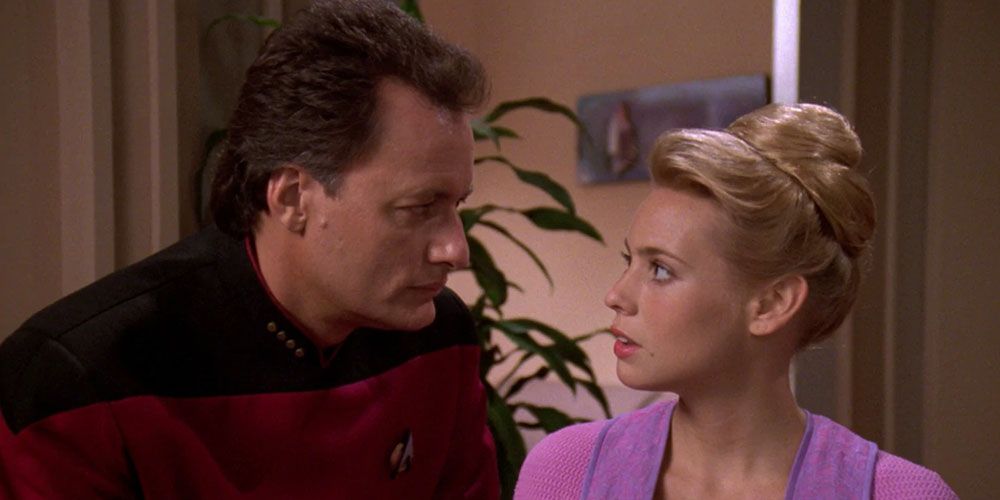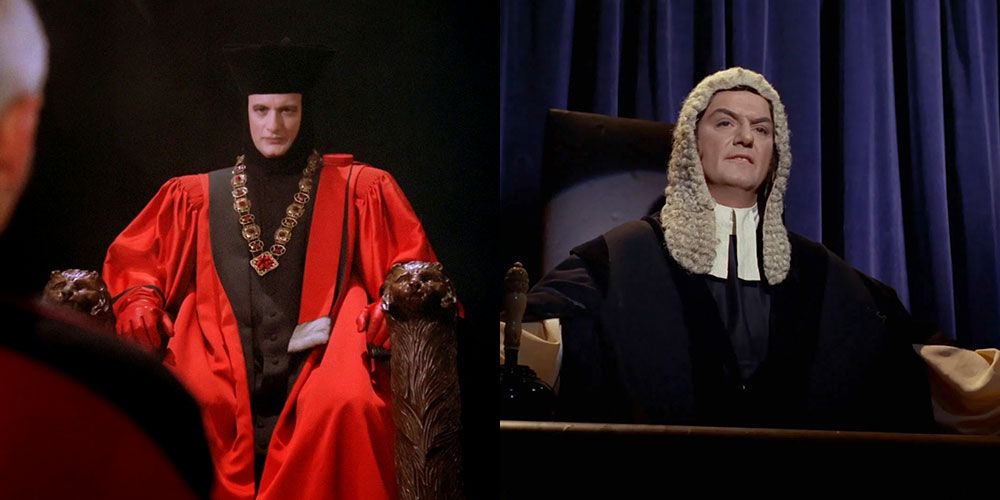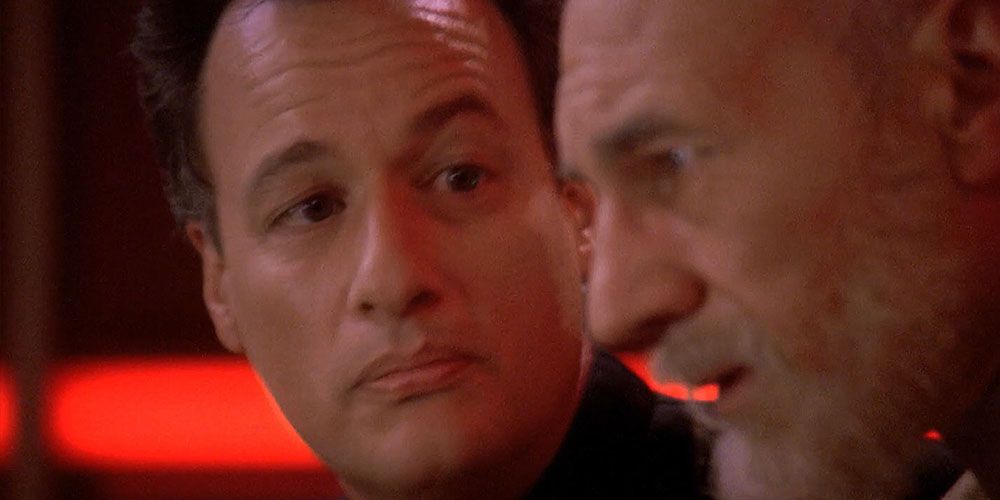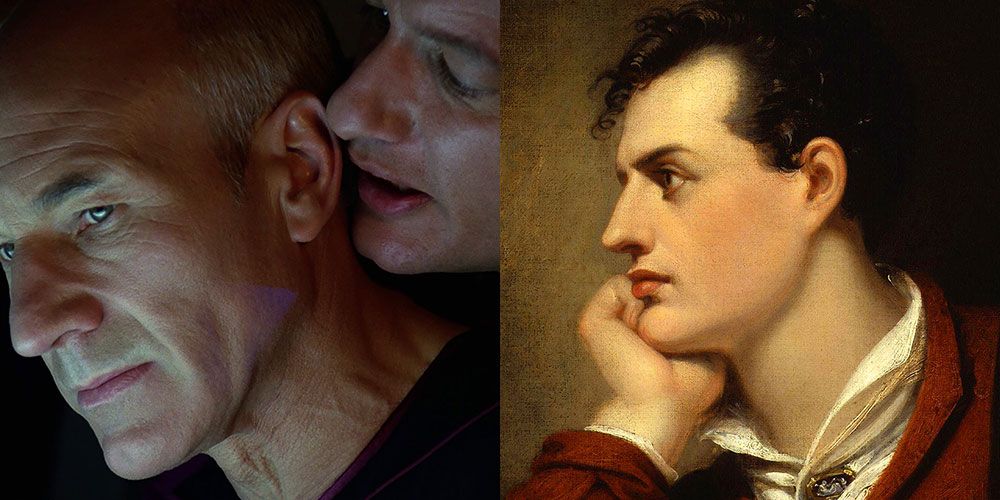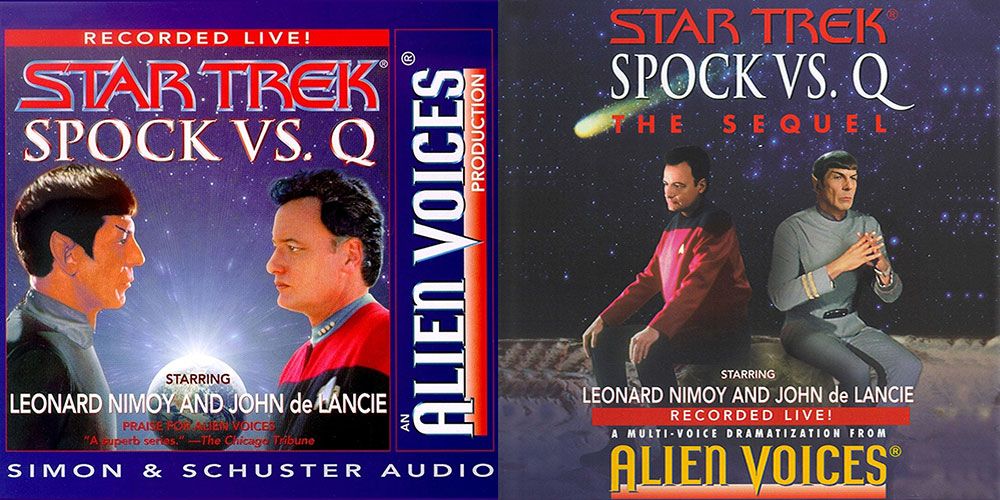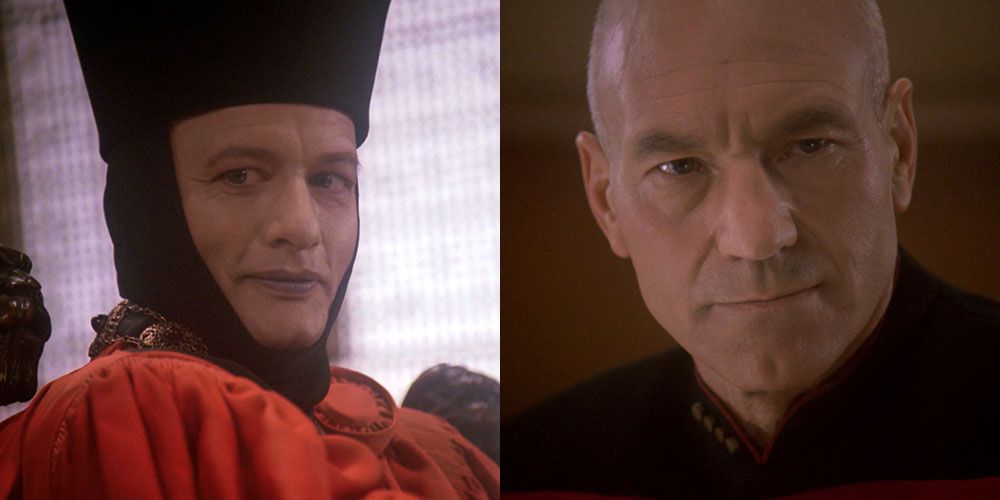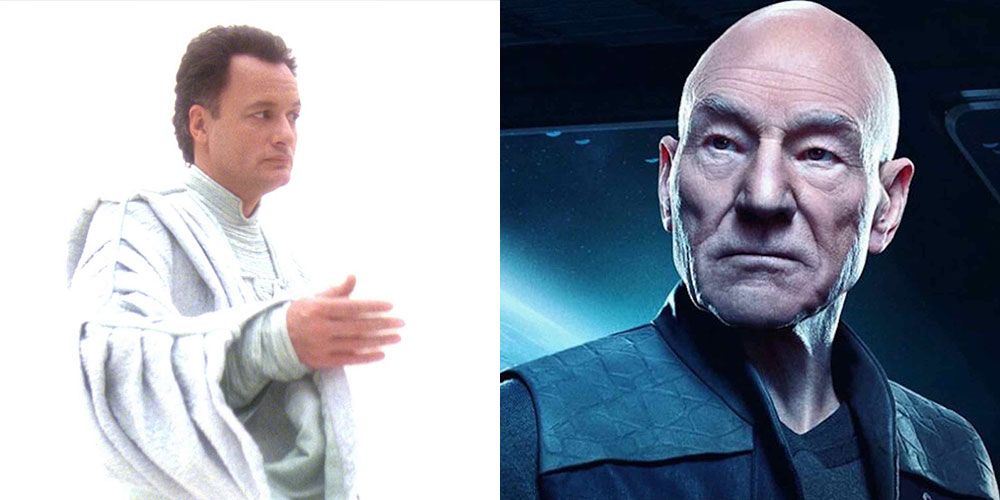Q has forever been a thorn in humanity's side, and a constant headache to Jean-Luc Picard. He's thrown the human race into harm's way more than once, but always for the purpose of testing their resolve, and helping them achieve their true potential.
Far from perfect (or moral), Q is nonetheless a staple of Star Trek lore. Played with brilliant excellence by John de Lancie, he remains a fan favorite to this day. There are so many things, as much as fans love him, that they aren't really aware of about this character...
He Was Named After A Woman
Star Trek creator Gene Roddenberry named Q after a woman...sort of. Roddenberry chose the singular letter "Q" as a tribute to a woman by the name of Janet Quarton, the first President of the U.K. Star Trek fan club.
As history tells it, Roddenberry was good friends with Quarton, who helped push the Star Trek concept to audiences over the pond, and contribute to its success. It may just be a letter, but it's an honorable distinction, nonetheless!
His Debated Entrance
The original depiction of Q's first big reveal was talked about in the script as him being a Judge floating in mid-air inside a courtroom. This description didn't sit well with producers, who struggled to come up with a convincing method of achieving such a shot.
In the end, production designer Herman Zimmerman stuck actor John de Lancie on a camera crane, lit his entrance with a spotlight, and the rest is history. The makeshift approach is readily apparent when one watches "Encounter At Farpoint," a far cry from what could have been done with the CGI of today.
John de Lancie Was A Pro
According to directors who worked with John de Lancie, the actor was professional, easy to work with, and knew his character inside and out. Director Rob Bowman loved working with de Lancie for the iconic season 2 episode "Q Who," which featured the first appearance of the Borg. According to Bowman, the actor "really had a grasp of the peculiarities of that character."
Fun fact: Rob Bowman would also provide the voice of the Borg during the episode - the first to do so.
He Was Challenging To Write
Star Trek: The Next Generation writers had an awful lot of trouble writing the character of Q, but the challenge ended up pushing their creativity and ingenuity to the max. Since the character was essentially a God, he could not be written as a pure antagonist, and since he wasn't entirely benevolent, he had to pose a threat that could be triumphed against.
In the end, TNG writers broke new ground to write the character into the show by having him ejected out of the Continuum and turned into a human. Future storylines would expand on Q's character and turn him from a renegade troublemaker to a mischievous anti-hero.
The Trelane Connection
According to legend, The Next Generation writers noted obvious similarities between the character of Q, and a previous character known as Trelane from the original series. Roddenberry was confronted over the fact, to which he agreed, but dismissed any warnings that it may look like a character rehash.
Roddenberry was proven right when audiences and critics praised the character of Q in the pilot episode "Encounter At Farpoint." Later, the Trelane connection would be established in the Star Trek novel Q-Squared, where it was revealed that Trelane was indeed a member of the Continuum.
The "Trek" Honor
John de Lancie bears the distinction of being the first Star Trek actor to use the word "Trek" on-screen, during the final episode "All Good Things...". It was a nice nod to the fandom, and done in such a way as to avoid making it seem too obvious.
The late James Cromwell would get to use the entire term "Star Trek" in the 1996 hit Star Trek: First Contact, but Q beat him to the relative punch, beforehand.
Mad, Bad, Dangerous To Know
John de Lancie has frequently stated in interviews that he drew inspiration for Q from a quote made about Lord Byron by Lady Caroline Lamb, who referred to him as "Mad, bad, and dangerous to know." He used this to fuel the character's penchant for unpredictability, volatility and supreme power.
In history, Lord Byron was a poet and politician born in 1788 who became infamous for marrying his half-sister, which forced him into exile from England. He would die young at the age of 36 after contracting a fever during the Greek War of Independence against the Ottoman Empire.
Spock Changed Him
The audio novel Spock Vs. Q pit the mischievous God against Spock himself, and the two locked intellectual and ideological horns for the first time. The story centered around an asteroid hurtling towards Earth near the end of the 20th century, which would destroy humanity.
Spock travels back in time to try and convince humanity to take the threat seriously, which prompts Q to show up and warn him against direct involvement. Spock retaliates with an intellectual logic barrage, which ends up changing Q's mind about the value of humanity, and what it could become.
He Loved Humanity
Whatever impressions viewers have of Q's confrontational relationship with the human race, it could be argued that he held deep fondness for it. While the character's initial introduction was antagonistic and threatening, later TNG episodes would reveal that Q seemed to have humanity's best interests at heart, and was more than willing to show them a bit of tough love, if it meant their survival.
This theory was kicked off during the popular season 2 episode "Q Who," when the cosmic being flings the Enterprise directly into the path of an incoming Borg cube. It would later be revealed that the Borg had prior knowledge of humanity's existence, and were already on an intercept course. By putting the Enterprise in direct confrontation with the cube, he was able to prepare humanity for what was coming, and help avert their destruction by challenging them with a life-or-death scenario - another test for humans to pass.
The Picard Possibility
During an interview with StarTrek.com, de Lancie was asked whether he thinks he'll get a shot at reprising his character in a future episode of Star Trek: Picard. The actor quipped in humorous fashion, "Well, I'm supposed to be immortal, right? Do I look immortal? 32 years is 32 years, so I'm not holding my breath."
While this may be true, it's entirely possible de Lancie is attempting to throw Star Trek fans off. After all, de-aging technology could easily bring Q back into the fold, with de Lancie still in the role. Plus, it would provide excellent closure to Picard's character if he was deemed ready for a final death.

